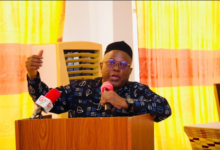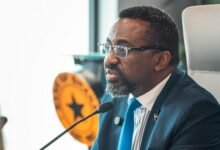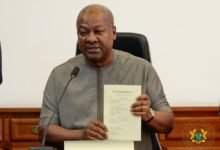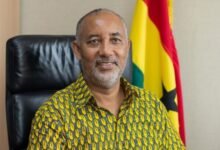STAR Ghana launches guide to support integration of Fulani community

In a bid to promote inclusion and break down stereotypes, STAR Ghana Foundation has launched the Fulbe Integration Manual, a guide designed to support the integration of the Fulani community into Ghanaian society.
The event, attended by key leaders and stakeholders, highlighted the need for deliberate action to end the marginalisation of this long-established ethnic group.
Speaking at the launch, Amidu Ibrahim-Tanko, Executive Director of STAR Ghana Foundation, emphasised the need to move beyond the stereotype that portrays the Fulani as merely herders or outsiders.
He called for recognition of the community’s diverse contributions to Ghana’s socio-economic development.
“We need to begin to look at how we take it from this,” he said, stressing the importance of embracing the Fulani as an integral part of Ghana’s growth story.
Mr Ibrahim-Tanko stated that excluding any significant section of the population, like the Fulani, could hinder national progress.
He urged stakeholders, including traditional leaders, civil society organisations, and security agencies, to adopt clear guidelines and best practices that ensure genuine inclusion.
According to him, Ghana’s development depended on the full participation of all its citizens, including historically marginalised groups.
President of the National Council of Fulani/Fulbe Chiefs, Chief Alhaji Iddrisu Mohammed Bingle, commended STAR Ghana for the initiative and was optimistic that the manual help curb the stereotype.
Reflecting on the deep historical roots of the Fulani in Ghana, he shared stories of Fulani settlements in areas like Cow Lane in Accra, where the community had lived for over a century, adding that In the Upper East Region’s Congo community, the Fulani had settled for more than 300 years.
Chief Bingle highlighted the persistent misconceptions faced by the Fulani, noting that many Ghanaians still question their citizenship.
“If you say you are Fulani, they say you are not Ghanaian, which is not correct,” he stated.
He expressed hope that the new manual would help dispel misinformation and shine a light on the truth about the Fulani’s contributions and rightful place in Ghana.
Dr George Amoh, Executive Secretary of the National Peace Council, emphasised the importance of deliberate government policies to integrate marginalised communities.
He noted that the Fulani were one of the largest ethnic groups in West Africa and criticized the lack of focus on their full inclusion in Ghana’s national agenda.
“Building a nation is not just about roads, bridges, or schools; it’s about integrating every section of our society,” Dr Amoh stressed.
He called on the government and citizens alike to commit to fostering unity, warning that failure to address exclusion could lead to future social tensions.
He also urged everyone to take personal responsibility in promoting inclusion, regardless of how small their role might seem.
BY AGNES OPOKU
SARPONG







